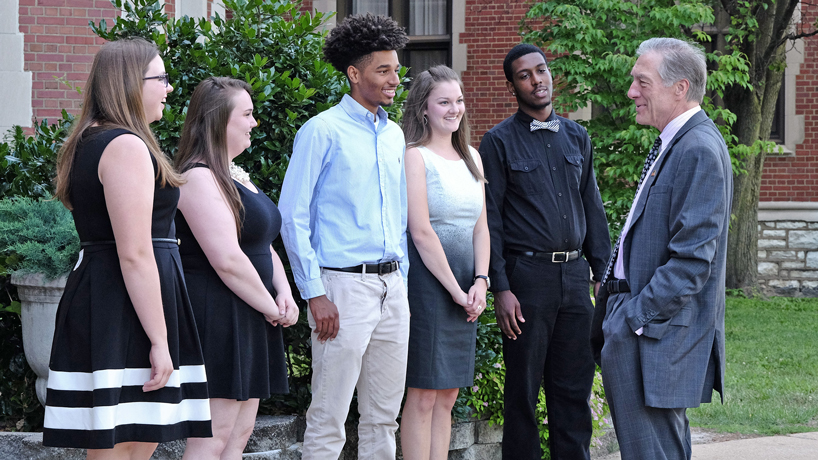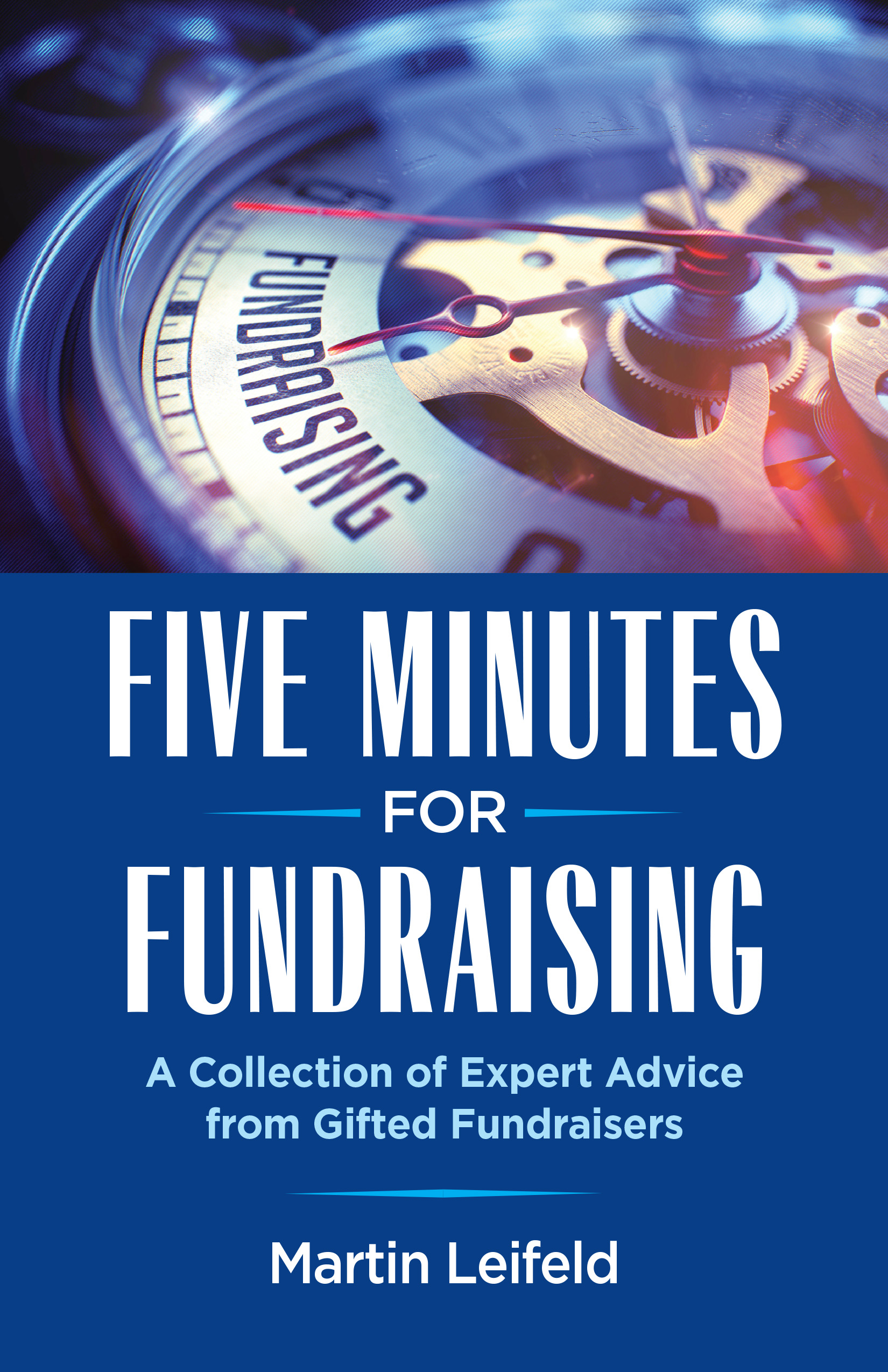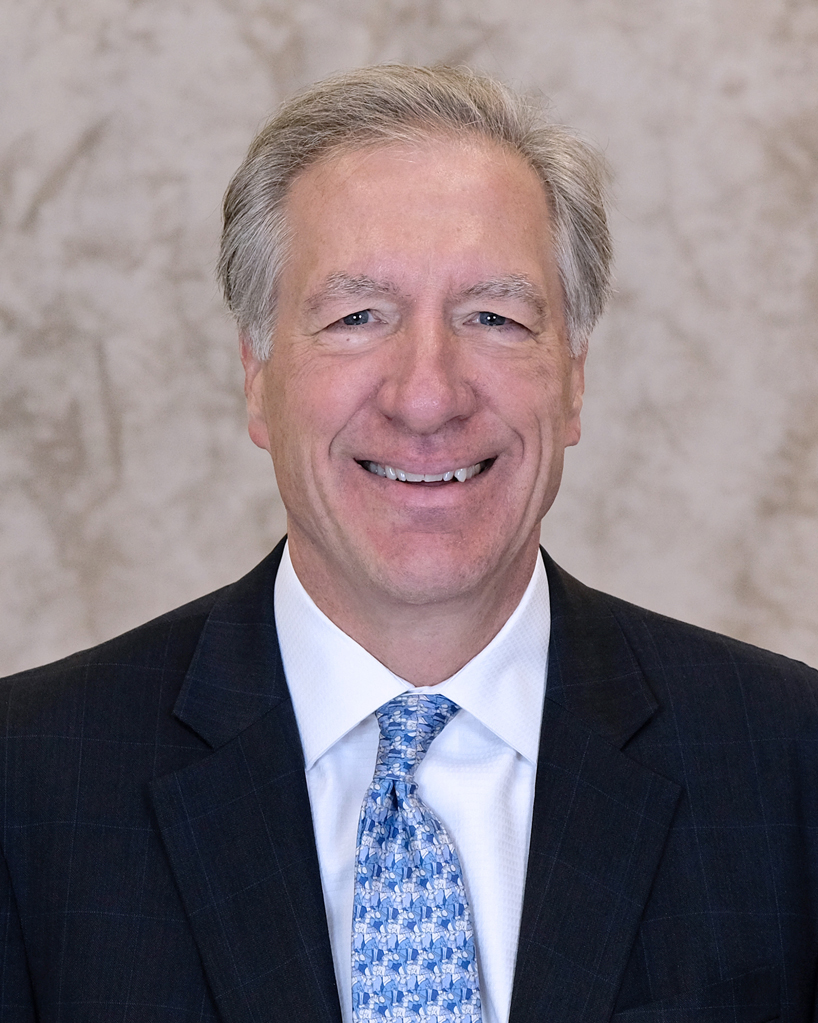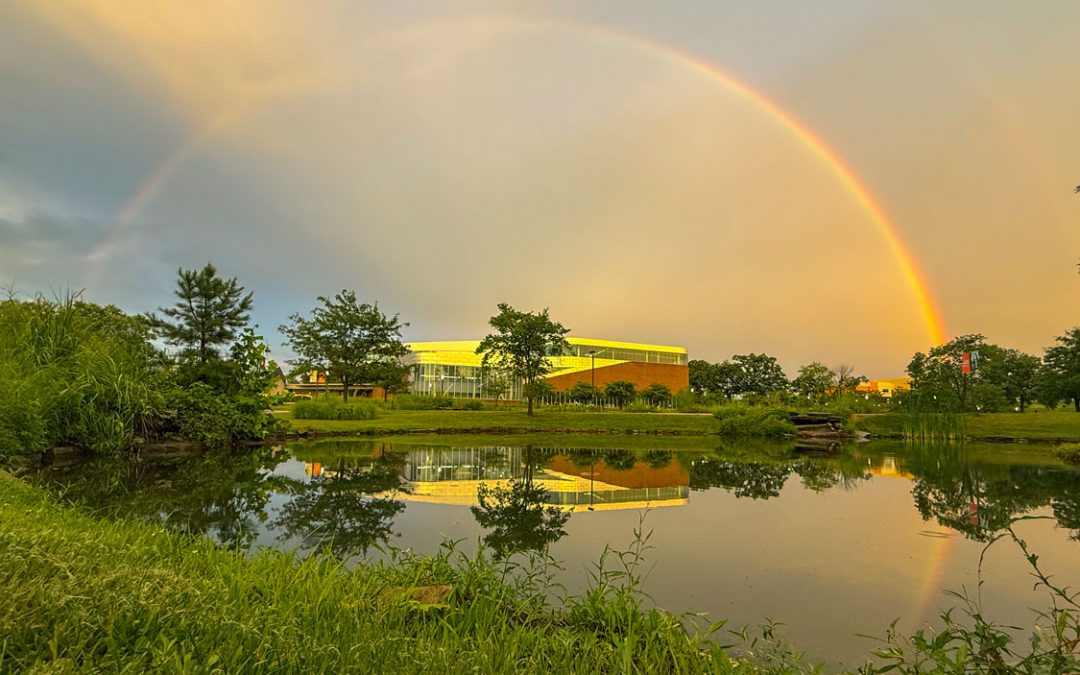
Vice Chancellor for Advancement Martin Leifeld (at right) converses with the 2020 class of the Opportunity Scholars Program. The all-inclusive scholarship is part of the comprehensive portfolio Leifeld oversees as the university’s chief fundraising officer. (Photos by August Jennewein)
Martin Leifeld first arrived at the University of Missouri–St. Louis amid the global financial crisis of 2008 with a steep task – raise $100 million for UMSL’s first comprehensive campaign. Soon after, the prolific fundraiser extended that goal and exceeded it, raising $154 million by the conclusion of the Gateway for Greatness Campaign in 2012.
Now approaching retirement on June 30, the vice chancellor for advancement expects to raise more than $260 million for scholarships, programs, professorships and facilities during his tenure. UMSL Daily reached out to Leifeld recently to reflect on these successes and offer some thoughts about the future.
How would you describe your UMSL experience?
It’s been a roller coaster ride, but on balance I’ve had far more highs than lows. The highs have been the great people I have worked with. I’ve been really fortunate. We have a terrific advancement team, and the department leaders in advancement have been stellar.
Working with the donors and working with university leadership have also been true highs. One of the things I love about engaging with people far smarter than I is that I learn so much. I have tried to be sponge-like and absorb their wisdom and their points of view.
As far as lows, we had an annual ritual here my first nine years, which were budget cuts. We could count on them. The flipside to that low is how we responded. We’ve worked hard to be adaptive, to regard those kinds of pressures as opportunities to change and become a better advancement group for the university.
What are you most proud of from your tenure at UMSL?
On my first day at work, Chancellor George said he had two overriding priorities for University Advancement. One was to take the campaign public that year, and the other was to use marketing to improve student recruitment.
We were three years into the campaign in 2008, and about a month after I started, the economic sky fell. Many organizations around the country suspended campaigns or decided not to launch. It might have been easiest to advise the chancellor that we should suspend the campaign, but I wasn’t hired to suspend the campaign. Through an encouraging insight in an article, I confirmed we absolutely had to push ahead. It turned out that we reached the campaign goal in two years. When I got here, we were at about $48 million. Four years later, we topped $154 million against a goal of $100 million. I’m very proud of that.
To accomplish the chancellor’s initial marketing goals, we convened marketing and communications experts, the university’s senior-most leaders and the finest pure market research company in higher education. This process led to a consensus that we should create UMSL’s first chief marketing officer position. We brought in Ron Gossen to fill that role, which gave life to the “Serious education. Serious value” positioning statement and the “I Chose UMSL” campaign. These efforts brought a new level of sophistication to the university and have been marvelously successful.
I’m also proud of what we have done in Grand Center. I think what’s happening at St. Louis Public Radio has been tremendous as a service, not just for St. Louis but now in other parts of Illinois and Missouri. Having a new facility in Grand Center and then the integration of the St. Louis Beacon has enabled tremendous momentum and growth most ably led by Tim Eby.
I am additionally proud of our leadership development. I’ve always believed that everyone is a leader. I said that in our first divisional meeting in August of 2008. That became part of our philosophical underpinnings of what advancement is all about. Developing people and learning from the terrific individuals on our team has been really special for me.
As you mentioned, the Gateway for Greatness Campaign exceeded both its original and extended goals despite the toughest economy in this lifetime. What’s your secret to fundraising success?
One morning as I was preparing for a panel after our first year of success, I coined the phrase “the relentless pursuit of major gifts.” You need to pursue gifts at every level, acquire new donors, help donors give more than once and hopefully increase their giving based upon their capacity and as their affinity for the university deepens and strengthens. But what moves the needle is major gifts. We’ve always had an intense focus on that.
What campus changes have you seen since the conclusion of the campaign in 2012?
I think what we have seen is there are more scholarship dollars available, and we continue to make scholarships a priority. The physical landscape of the campus has dramatically changed with our health sciences facility, Science Learning Building, wellness and recreation center, business school building and off campus at our UMSL at Grand Center facility. Both the business school and UMSL at Grand Center would not have happened without strong philanthropic support.
Buildings have a lot to do with enhancing the educational experience for our students, faculty and staff. I think the addition of the new buildings symbolize the growth and development of the university, the hard work of advancement and the dedication of really everyone involved with UMSL.
What’s your vision for University Advancement in the years ahead?
I think we have created a culture of philanthropy internally and among our alumni. When I arrived, the majority of philanthropic support that came to the university was through local corporations and foundations and local communitarians. There wasn’t as much of that with alumni because of their relative youthfulness and the development that happens with people over time. Certainly in the last 10 years, we have received many major gifts of all sizes from our alumni.
Now we talk about the three alumni couples that have reached or surpassed $5 million in financial commitments to the university. I think that is tremendous, and it bodes well for my successor. There is a culture of philanthropy that exists within the university, an appreciation of the importance of fundraising among the stakeholders and a desire to raise more funds for the university and for what our folks here care most about.
What’s next for you?
I’m taking all of July and August completely off. My wife, Ellen Howe, and I have some domestic travel planned as well as seeing family. I have seven grandchildren who I look forward to seeing more. Unless something comes along that will surprise me and seem appropriate, I think I am going to be consulting up to four days a week and do that for a few years. I hope that the lessons that I have learned at UMSL and throughout my career could be valuable to other organizations and other leaders.
 I wrote a new book, Five Minutes For Fundraising, that will be available June 1. It’s a great book, and it’s great primarily because I have 26 experts who undergird and support what material I brought to the book. So it’s not just insights and experiences that I have had, but it’s taking advantage of the insights of experts all around the country. I’m very excited about that. It’s a gratifying accomplishment. It’s my first book, and I hope it will be useful for many people and the organizations they support.
I wrote a new book, Five Minutes For Fundraising, that will be available June 1. It’s a great book, and it’s great primarily because I have 26 experts who undergird and support what material I brought to the book. So it’s not just insights and experiences that I have had, but it’s taking advantage of the insights of experts all around the country. I’m very excited about that. It’s a gratifying accomplishment. It’s my first book, and I hope it will be useful for many people and the organizations they support.
What are some of the key insights that you offer in the book?
One of the insights I think I’ve added to the vocabulary in fundraising is that “time belongs to the donor.” As fundraisers, we can talk about the fiscal year, the end of the calendar year, the end of a campaign as ways to create urgency to motivate donors to make gifts, but fundamentally it’s the donor’s time and the donor’s money. We have only a little insight into their financial resources and little insight into what preoccupies their time. Still, it is the fundraiser’s job to work with the donor for timely giving.
Another chapter focuses on how much to ask for. That’s a perennial question a fundraiser has to figure out. Given the donor, what is it we ask to be supported by them and how much do we ask for? There’s a bit of science and a bit of art to figure that out.
Again, these are representative of ideas in the book that not everybody has thought about. I think for fundraisers, so often we are so hard charging, so motivated and driven to raise funds for the organizations we are privileged to work for that we don’t reflect enough. We don’t take time to consider what it’s all about. I think the book in some respects is a series of reflections as much as anything – the reflections of a community of fundraisers as guidance for both professionals and volunteers who raise money for the work of vital organizations.
An executive search to fill Leifeld’s vacancy is underway. The position serves as UMSL’s chief fundraising officer, manages the Chancellor’s Council and oversees strategic planning, activities and resource allocation for University Advancement. The four units of this division are university development, alumni engagement, marketing and communications, and St. Louis Public Radio| 90.7 KWMU. Kristin Sobolik, UMSL’s provost and executive vice chancellor for academic affairs, chairs the search committee.















